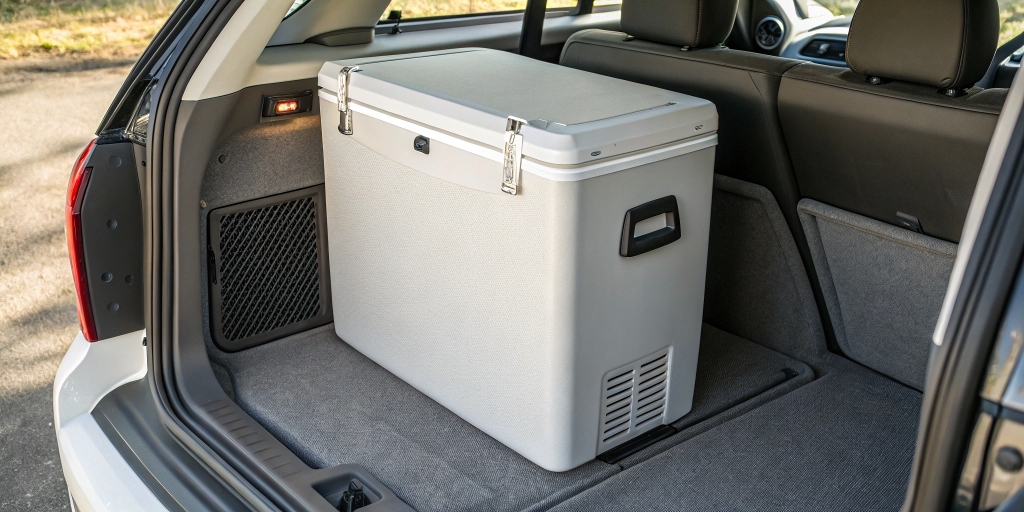
Understanding Consumer Preferences in Portable Refrigerator Purchases
In recent years, the demand for portable refrigerators has surged, driven by the growing trend of outdoor activities, such as camping and road trips, as well as the need for convenient food storage solutions. Understanding consumer preferences in this niche market can provide valuable insights for manufacturers and retailers aiming to enhance their product offerings and marketing strategies.
The Rise of Portable Refrigerators
Portable refrigerators have evolved significantly, transitioning from basic cooling boxes to sophisticated devices equipped with advanced technology. The modern consumer is not just looking for a cooler but a reliable appliance that can maintain optimal temperatures for various types of food and beverages, sometimes even incorporating freezer capabilities.
The portability factor is crucial for users who value both convenience and efficiency. As our lifestyles become more mobile, owning a portable refrigerator allows for flexibility in travel and outdoor adventures without compromising on the quality of food storage.
Key Factors Influencing Consumer Choices
Understanding what drives consumers to choose particular portable refrigerator models involves examining several key factors:
1. Size and Capacity
The capacity of a portable refrigerator is one of the first considerations for consumers. Depending on their needs, some might prefer compact models suitable for personal use, while families or groups engaging in longer trips might opt for larger capacities. The interior layout, such as adjustable shelves and compartments, also plays a role in this decision-making process.
2. Power Source Options
Consumers often look for versatile power options in portable refrigerators. The ability to switch between AC, DC, and solar power sources can be a decisive factor, especially for users planning to use their refrigerator in various settings, from vehicles to campsites with limited power access.
3. Energy Efficiency
With increasing awareness of environmental issues and energy costs, energy efficiency has become a significant consideration. Consumers are inclined towards models that offer efficient cooling with minimal power consumption, often indicated by Energy Star ratings or similar certifications.
4. Temperature Control and Range
The ability to precisely control and maintain specific temperatures is crucial for preserving different types of food and beverages. Some consumers might prioritize models that offer separate freezer and refrigerator compartments or digital thermostats for enhanced control.
5. Durability and Build Quality
Portable refrigerators are expected to withstand a range of environments and conditions. Therefore, build quality and durability are important factors for consumers who require a dependable appliance that can handle the demands of outdoor and travel use.
6. Noise Levels
Noise can be a concern, especially for those using portable refrigerators in confined spaces like vehicles or tents. Consumers often prefer models that operate quietly, ensuring their environment remains undisturbed.
7. Additional Features
Extra features such as digital displays, USB ports for device charging, and smart connectivity options can also influence consumer preferences. These enhancements add an element of convenience and modernity to the product, appealing to tech-savvy users.
Implications for Manufacturers and Retailers
Understanding these consumer preferences offers manufacturers and retailers a roadmap to align their product development and marketing strategies effectively. By focusing on the aforementioned factors, they can tailor their offerings to meet the expectations of their target audience, ultimately driving sales and customer satisfaction.
Furthermore, retailers can leverage digital platforms to reach wider audiences and offer a seamless shopping experience. For instance, incorporating Massage and spa gadgets online into their online retail strategy can broaden the range of products and services available to consumers, enhancing convenience and accessibility.
Conclusion
As the portable refrigerator market continues to expand, staying attuned to consumer preferences will be key to success. Manufacturers and retailers who prioritize consumer needs and preferences will be better positioned to thrive in this competitive landscape, offering innovative and practical solutions that resonate with modern consumers.
In conclusion, understanding what consumers value in a portable refrigerator—be it size, power versatility, efficiency, or additional features—provides a strategic advantage. With the right insights, industry players can create compelling products that not only meet but exceed consumer expectations.



Average Rating